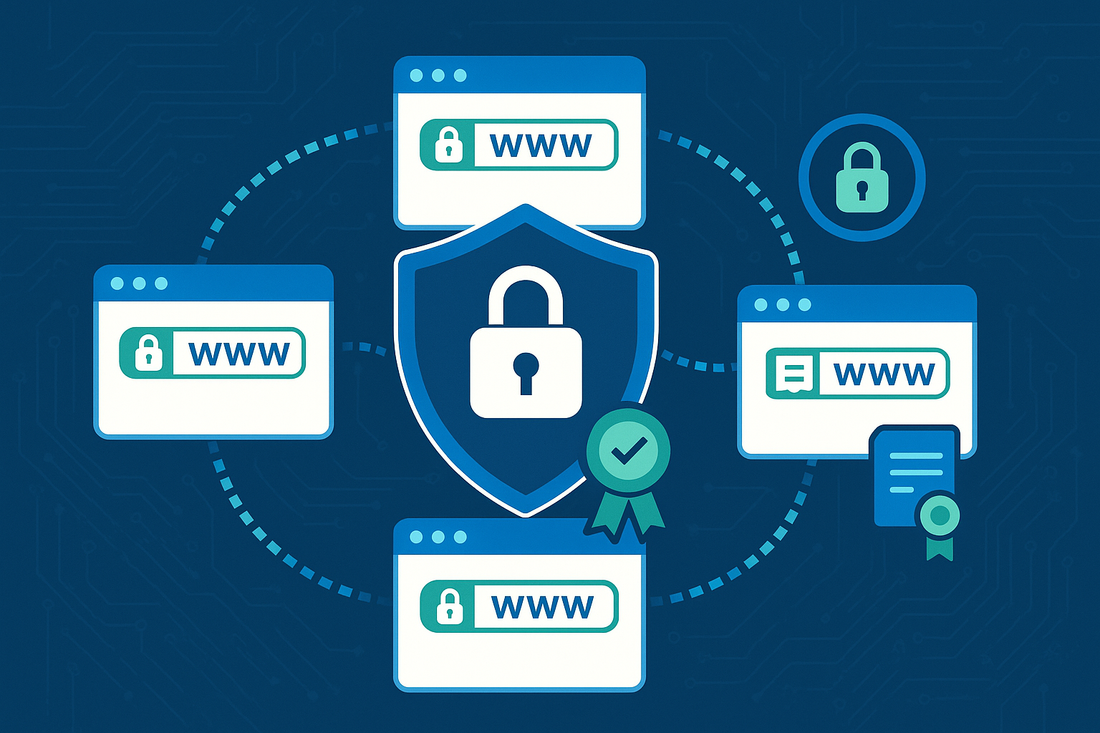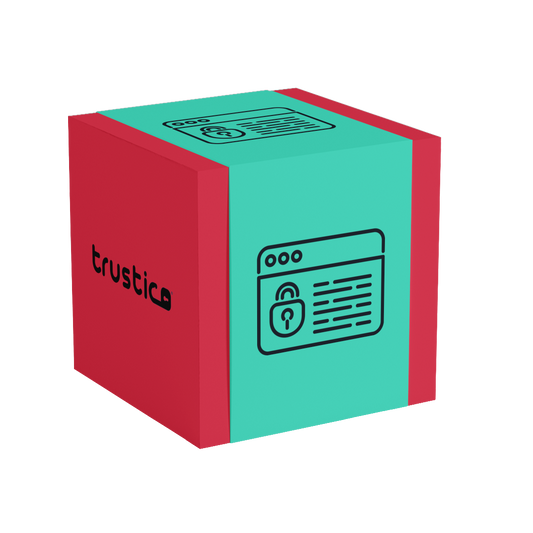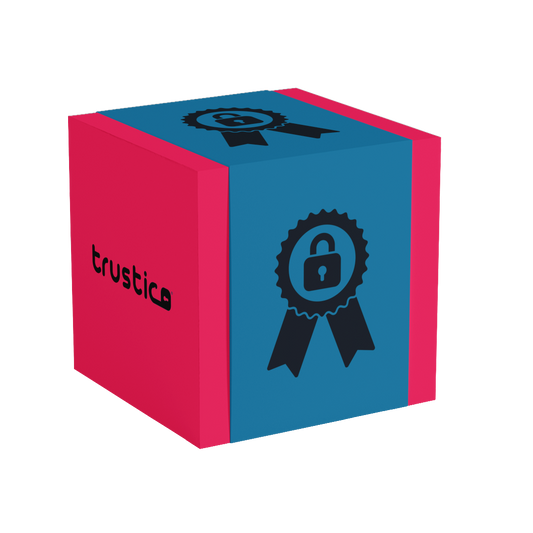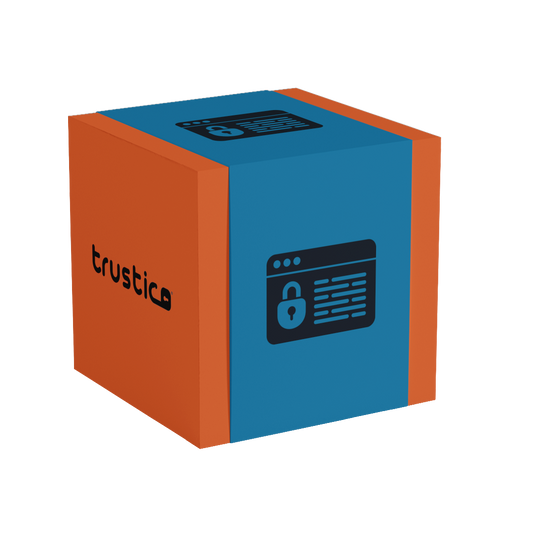
Understanding Shared SSL Certificates for Web Security
Rachel GreenShare
Shared SSL Certificates offer a cost-effective security solution for websites, though may not offer the features and security you may need for your website.
As a leading SSL Certificate provider, Trustico® helps organizations understand and implement the right SSL Certificate solution for their specific requirements.
What Is a Shared SSL Certificate?
A shared SSL Certificate allows multiple websites or subdomains to use the same SSL Certificate for encrypting data transmissions.
When you purchase a Trustico® SSL Certificate, you get access to industry-leading encryption technology backed by our world-class support team. Our partnership with Sectigo® ensures the highest levels of browser trust and compatibility.
Technically, shared SSL Certificates work by securing a primary domain, with additional domains or subdomains leveraging this security through various implementation methods.
This differs from multi-domain SSL Certificates or wildcard SSL Certificates, which have different structural characteristics and use cases.
Common implementation methods for shared SSL Certificates include using shared hosting environments where the hosting provider installs a single SSL Certificate on the server, or through reverse proxy configurations that route traffic through a secure gateway.
Benefits of Shared SSL Certificates
Shared SSL Certificate solutions provide several key advantages. These include reduced costs through shared infrastructure, simplified management for multiple domains, and immediate implementation without technical complexity.
Shared SSL Certificates deliver the same robust encryption as dedicated SSL Certificates, making them ideal for small businesses and development environments.
The cost savings of shared SSL Certificates can be substantial, especially for organizations managing multiple small websites or projects. It's important to note that there are a few different ways to come across a shared solution, it could be offered by your hosting company or setup by yourself for centralized use of your online business resources.
Rather than purchasing individual SSL Certificates for each property, a shared solution allows for consolidated security investment while maintaining essential encryption protection.
Reduced administrative overhead represents another significant advantage. With shared SSL Certificates, organizations can centralize SSL Certificate management, renewal processes, and security monitoring.
This streamlined approach is particularly valuable for teams with limited technical resources or those managing numerous web properties.
Limitations of Shared SSL Certificates
While shared SSL Certificates offer important benefits, Trustico® believes in transparent communication about their limitations.
Shared SSL Certificates typically use a different URL structure than the original website, which may impact user experience and search engine optimization.
Most shared SSL Certificate implementations display the primary domain name in the browser address bar rather than your specific domain. This can reduce brand visibility and potentially affect visitor trust, particularly for commercial websites.
Security isolation between websites using the same shared SSL Certificate may be limited compared to dedicated SSL Certificate solutions.
For organizations with stringent security requirements or those handling sensitive data, Trustico® offers dedicated SSL Certificate options that provide enhanced protection and validation.
When to Use Shared SSL Certificates
Trustico® recommends shared SSL Certificates only for specific use cases. These include testing environments, small business websites, and scenarios where multiple subdomains need basic encryption protection.
For e-commerce sites or those handling sensitive data, Trustico® suggests dedicated SSL Certificates like our Sectigo® Organization Validation (OV) or Extended Validation (EV) SSL Certificates. These provide enhanced validation and visual trust indicators.
Blogs, informational websites, and personal projects with limited budgets can benefit significantly from shared SSL Certificate solutions. These types of sites typically require basic encryption without the advanced features of dedicated SSL Certificates.
Temporary websites or promotional microsites with short lifespans represent another ideal use case for shared SSL Certificates. The quick implementation and cost efficiency make them perfect for time-limited projects where investing in dedicated SSL Certificates may not be justified.
Shared vs Wildcard SSL Certificates
It's important to understand the difference between shared SSL Certificates and wildcard SSL Certificates. While both can secure multiple sites, they function differently and serve distinct purposes.
Wildcard SSL Certificates from Trustico® secure a domain and all its first-level subdomains (e.g., *.example.com). These are dedicated SSL Certificates that you own and control, providing greater security and branding benefits than shared SSL Certificates.
Shared SSL Certificates, by contrast, typically leverage someone else's SSL Certificate (often your hosting provider's) to provide basic encryption. While cost-effective, they don't offer the same level of control or branding as wildcard SSL Certificates.
For growing businesses that anticipate expanding their web presence with multiple subdomains, Trustico® often recommends considering wildcard SSL Certificates as a scalable alternative to shared SSL Certificates. This provides greater flexibility and control while maintaining cost efficiency.
Implementation Requirements
Implementing a Trustico® shared SSL Certificate requires basic technical prerequisites. Your hosting environment must support SSL Certificate installation, and your domain must be properly configured for SSL Certificate validation.
For shared hosting environments, implementation typically involves selecting the shared SSL Certificate option through your hosting control panel.
Best Practices for Shared SSL Certificates
Trustico® recommends following established best practices when using shared SSL Certificates. Regular SSL Certificate monitoring, timely renewals, and proper security configurations are essential for maintaining protection.
When using shared SSL Certificates, implement additional security measures to compensate for any limitations. This includes using strong authentication mechanisms, implementing proper access controls, and regularly updating all website components and plugins.
Consider implementing HTTP Strict Transport Security (HSTS) policies to ensure all communications use secure connections. While this doesn't address all shared SSL Certificate limitations, it helps maintain encryption integrity for your visitors.
Regularly review your security needs as your business grows. What starts as a simple informational website may evolve to collect user data or process transactions, potentially necessitating an upgrade from shared to dedicated SSL Certificates.
SEO Implications of Shared SSL Certificates
Search engines like Google prioritize secure websites in their rankings, and while shared SSL Certificates do provide encryption, they may have specific SEO implications worth considering.
The URL structure used with many shared SSL Certificate implementations can create challenges for search engine optimization. When your secure pages use a different domain structure than your main site, this can affect how search engines index and rank your content.
For websites where search visibility is a priority, Trustico® often recommends evaluating dedicated SSL Certificate options that allow you to maintain consistent domain branding in both secure and non-secure contexts.
If you must use shared SSL Certificates for budget reasons, implement proper canonical tags to help search engines understand the relationship between your standard URLs and their secure counterparts.
Upgrading from Shared to Dedicated SSL Certificates
As your business grows, Trustico® makes it easy to upgrade from shared to dedicated SSL Certificates. Our range includes Sectigo® branded SSL Certificates for various validation levels and use cases.
Trustico® SSL Certificate experts can help evaluate your needs and recommend the most appropriate SSL Certificate type. We ensure seamless transitions while maintaining continuous security coverage.
The upgrade process typically involves purchasing your dedicated SSL Certificate, completing the validation process, and installing the new SSL Certificate on your web server.
Consider upgrading to a dedicated SSL Certificate when your website begins collecting sensitive user information, processing payments, or when brand recognition becomes increasingly important to your business strategy.
Getting Started with Trustico® SSL Certificates
Contact Trustico® today to discuss your SSL Certificate needs and receive expert guidance on choosing the right security solution. Our team is ready to help protect your online presence with trusted SSL Certificate products.
Trustico®'s commitment to customer education means we'll help you understand the implications of different SSL Certificate choices and make informed decisions based on your specific security requirements, budget constraints, and business objectives. We're standing by to assist with any guidance needed to implement the right solution for your environment.







